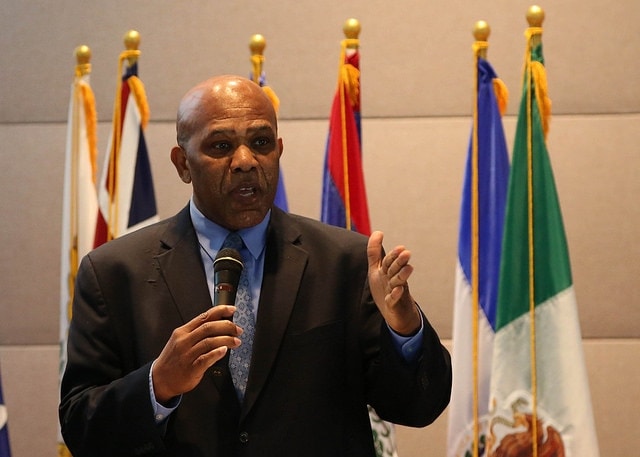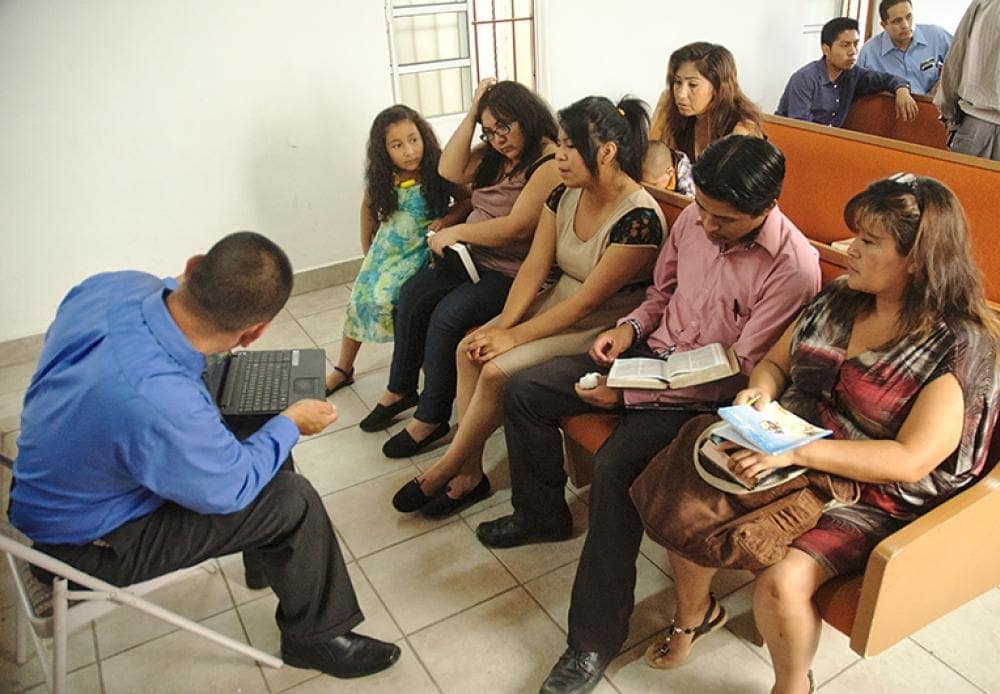
Seventh-day Adventist Church leaders intend to step up the distribution of Sabbath School study guides and to better prepare Sabbath School teachers in an effort to reverse a slide in Sabbath School attendance across the Caribbean, Central America, and the northern regions of South America.
The Adventist Church’s Inter-American Division made the decision after a division-wide survey showed a drop in the number of church members attending Sabbath School classes and studying the Sabbath School study guide every week.
The main reason for the decline? Nearly half of church members do not receive study guides and only about half attend Sabbath School regularly, said Samuel Telemaque, Sabbath School director for the church in Inter-America, citing the survey.

“This is a challenge that still affects the church member who needs access to study and be prepared for the lesson study,” Telemaque said.
Telemaque presented the results of the online survey of 1,653 church members in English, Spanish, and French at division year-end meetings held this month in Miami, Florida. The main purpose of the survey was to examine issues affecting the nurturing, programming, and equipping of Sabbath Schools in the division’s more than 20,000 congregations.
Telemaque said a priority that emerged from the survey was to give church members more access to quarterly Sabbath School study guides. Most members have to purchase their study guides in hardcopy form, and few churches budget study guides so members can take them free of charge.
Of the members surveyed, 79 percent of English speakers received study guides for free from their churches, but 70 percent of Spanish speakers and 42 percent of French speakers had to buy their own guides. No margin of error was given for the survey of 894 men and 759 women mostly ranging in age from 25 to 54.
Another issue that emerged from the survey is Sabbath school classes are not always led by trained teachers who facilitate learning and in-depth study of the Bible, Telemaque said.
When respondents were asked whether there was a “need for innovative Sabbath School program resources for Sabbath School directors in your local church,” a firm “yes” was said by 80 percent of English speakers, 75 percent of Spanish speakers, and 83 percent of French speakers.
Other factors happening outside church, such as overworking, also affect attendance, Telemaque said.
“Over the years we have seen how a number of social factors, economic factors, and world view factors affect our people in attending Sabbath School every week,” he said. “Because of economic pressures, many can only make it to divine worship services because they are tired from working several jobs during the week.”
Another finding showed that church members felt that a low percentage of the division’s 30,000 Sabbath School teachers were well prepared to teach the class every Sabbath. Only 37 percent of English and Spanish speakers and 41 percent of French speakers agreed that their teachers were prepared.
Fellowship is a big part of the Sabbath School class every week, but the main study of the Bible needs to be its top priority, Telemaque said. Keeping to that priority means church members who volunteer as Sabbath School teachers every Sabbath morning need to be properly trained to teach the class, he said.
“We need to go back to why Sabbath School was instituted in our church, and that was with special emphasis on the study of the Word of God,” he said.

Church leaders from across the division strongly recommended during the year-end meetings that every member receive a quarterly Sabbath School study guide for free.
“Make a serious effort to ensure churches in your territory make this material available for free to members, because this is an urgent matter, it’s part of growth, retention and evangelism in each church,” said division president Israel Leito.
That may be easier said than done. In many countries, the study guide costs US$1 to $3, a figure that adds up quickly in a division with more than 3 million members.
Mexico, for example, has nearly 717,000 church members in five church unions, yet the local GEMA Publishing house prints and sells only 300,000 regular adult study guides and 120,000 teacher’s study guides each quarter. Some members purchase one guide per family and others obtain the lesson online. But most have to purchase their own copies because few churches making the guides available for free.
In Venezuela, which is experiencing political and economic turmoil, study guides go for no more than $2 each, but that cost represents 10 percent of a member’s monthly income, said Josney Rodriguez, president for the church in East Venezuela, which is based in Caracas.
“We want to offer the quarterly for free to every member, but our local printing costs are high and our members are struggling to obtain basic needs right now,” he said.
Rodriguez said his office would discuss ways to offer the study guides for free.
Division leaders voted to create new resources to help Sabbath School leaders with Bible-based programs and to develop systems to care for and assimilate new members in Sabbath School.
Telemaque will hold trainings in 13 of Inter-America’s 24 unions to equip church administrators, pastors, and Sabbath School teachers from January 2016.
Herbert Fletcher University, an Inter-American institution offering online education, will begin to provide a Sabbath School certification program for teachers starting in September 2016.
“Our main goal of the Sabbath School is to develop members who are capable of applying spiritual discipline to resist temptation, to cope with crisis, to enjoy victorious living in Christ, to live in readiness for the coming of Jesus, and to participate in God’s mission in the world,” Telemaque said.